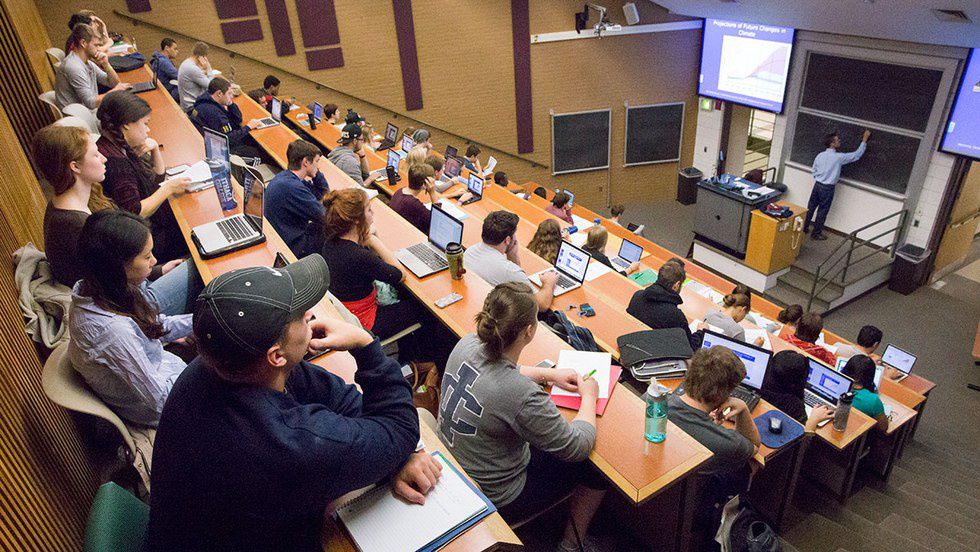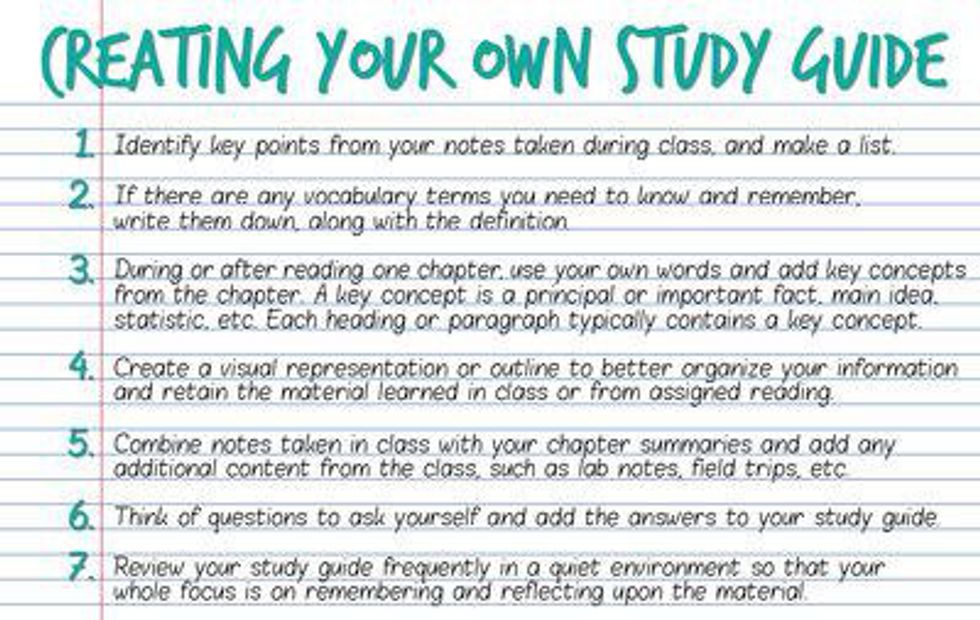For many people, transitioning from high school classes to college classes can be difficult. In college you have more freedom which means that you must manage your time well. College courses are structured differently too, and this can take some getting used to. Below is a list of helpful tips that I find are essential to doing well in college courses. Of course, people learn differently and what works for one person does not always work for another.
Above all, remember a bad grade is not the end of the world, nor is it a true reflection of how intelligent you are. Some people just don't test well. Exams and papers can only test your understanding and knowledge in a limited way. Getting good grades is as much about understanding the system as it is about intelligence. Moreover, getting one bad grade is not going to ruin your career, just don't make a habit of it.
1. Show up
It seems obvious, but you'd be surprised by how many people think they can still do well in a class without, you know, actually going to class. Going to class ensures that you won't miss any information that you are supposed to know. Even if all the professor does is repeat information from the readings, going to class will reinforce these ideas in your brain.
2. Write EVERYTHING down
Even if you think it's not important, write it down anyway. Take notes on lectures, on your readings, and on anything else relevant to the course. Even if you don't end up reading all your notes later when you are studying for an exam, writing things down helps you remember them.
3. Participate
Ask questions if you don't understand something. Answer the professor's questions as well. Participating helps you to focus and not zone out. It is also usually part of your grade.
4. Don't procrastinate
I know everybody says this, but its true. Some people do their best work under stress, but they are the exception rather than the rule. If you manage your time well and spread your homework out, your brain can absorb info in digestable bits rather than being overwhelmed in a torrent of ideas. Besides, being less stressed is better for your health and being healthy makes both going to class and doing homework easier.
5. Sleep
Some people think that it is better to sacrifice sleep in order to study. Trust me, its not. In addition to the fact that you will be groggy and muddled the next day from lack of sleep, you will actually remember more if you study some and then sleep than if you stay up all night to study. This is because info is stored in long-term memory during sleep, so if you do not sleep the information you just learned will not stick. Of course, if you don't procrastinate, hopefully you will not be so short on time in the first place.
6. Engage in multiple forms of learning
Information is best stored in your brain when you engage with it in multiple ways. For example, hearing it, writing it and teaching it to another person. Sometimes when I have a big test, I will record myself reading my notes or a study guide and then listen to the recording later. Both the act of reading it and the act of listening to it helps me remember. Scientifically, the best way to learn something is to teach it to someone else. So, find some study buddies and explain stuff to each other-- each of you can explain what the others don't understand.
7. Make study guides
8. Write drafts first
Even if your professor does not require you to turn in an outline or a rough draft of your paper before the final version, it is helpful to do so anyway. In order to do this you cannot procrastinate. Thinking of your first version as a draft will help you overcome writer's block because you will be putting less pressure on yourself to make it absolutely perfect so instead you can focus on simply getting your ideas down. Also, coming back to a paper helps you notice things that you didn't notice the first time around. Sometimes in the final draft you will find yourself rewriting the entire thing and sometimes you may end up merely changing around a few words. Either way, its worthwhile.
9. Get help if you need it
There is no shame in asking for help; even the smartest people don't understand everything. Go to office hours and TA sessions, get a peer tutor, whatever works best for you.


























